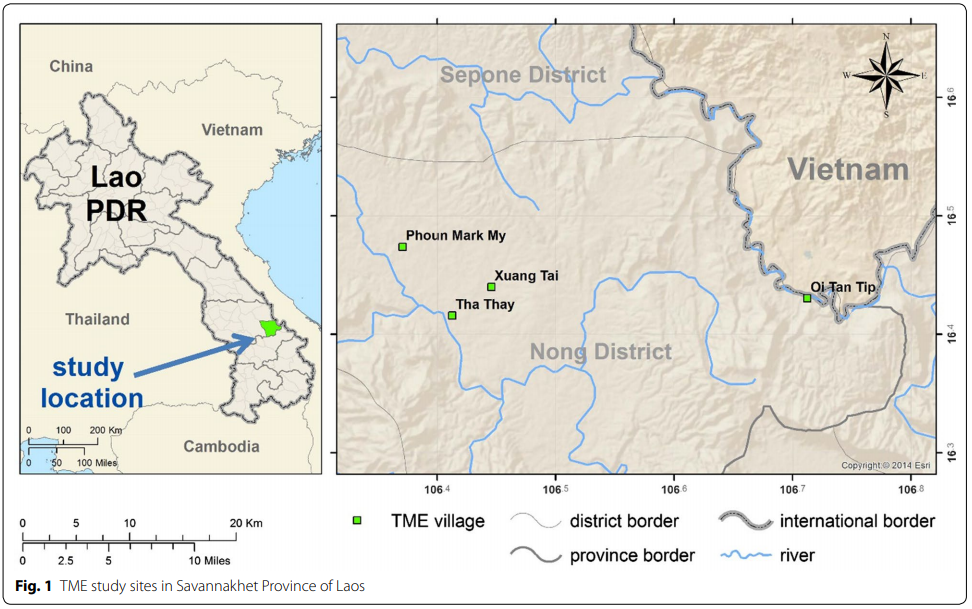This article reports the findings of a quantitative study conducted after the completion of a Targeted Malaria Elimination (TME)* project in southern Savannakhet Province, Lao PDR (Laos).
Image: TME study sites in Savannakhet Province of Laos (Adhikari et al. 2018)
The study aimed to explore reasons for individuals’ participation in the TME project. The TME consisted of three rounds of mass drug administrations (MDA), and quarterly blood tests, accompanied by community engagement comprising five key elements:
- Meetings with authorities at various levels before initial village-level activities
- Formative research on knowledge and attitudes towards malaria and MDA
- Villagers trained as volunteers who coordinate village level meetings about TME
- Responsive approach with activities adapted to the outcomes of village meetings
- Shared leadership and decision making on all TME activities
The survey found five key variables that independently influenced complete participation in the TME project. These were:
- Attending TME meetings
- Knowing that malaria can be diagnosed through blood tests
- Participation by all members of a household
- Liking all aspects of TME (e.g. those who disliked blood tests, taking medicine etc. were less likely to complete the TME project)
- The perception that TME was worthwhile
The article concludes that complete participation in TME was significantly associated with participation in community engagement activities. The article suggests that a responsive approach to community engagement (that includes formative research and the involvement of community members) may increase the uptake of an intervention.
*Targeted Malaria Elimination (TME) = ‘the presumptive treatment of an entire community to interrupt completely local malaria transmission’ (Adhikari et al. 2017)
Click here to download the full PDF.

This work is licensed under a Creative Commons Attribution 4.0 International License.
Also By
- Bridging a gap between community and the research institution via a youth advisory group on health and health research in rural Cambodia
- Community engagement and the centrality of ‘working relationships’ in health research
- Project Report: “Nothing about us without us”: How families affected by Zika are claiming back control


Please Sign in (or Register) to view further.